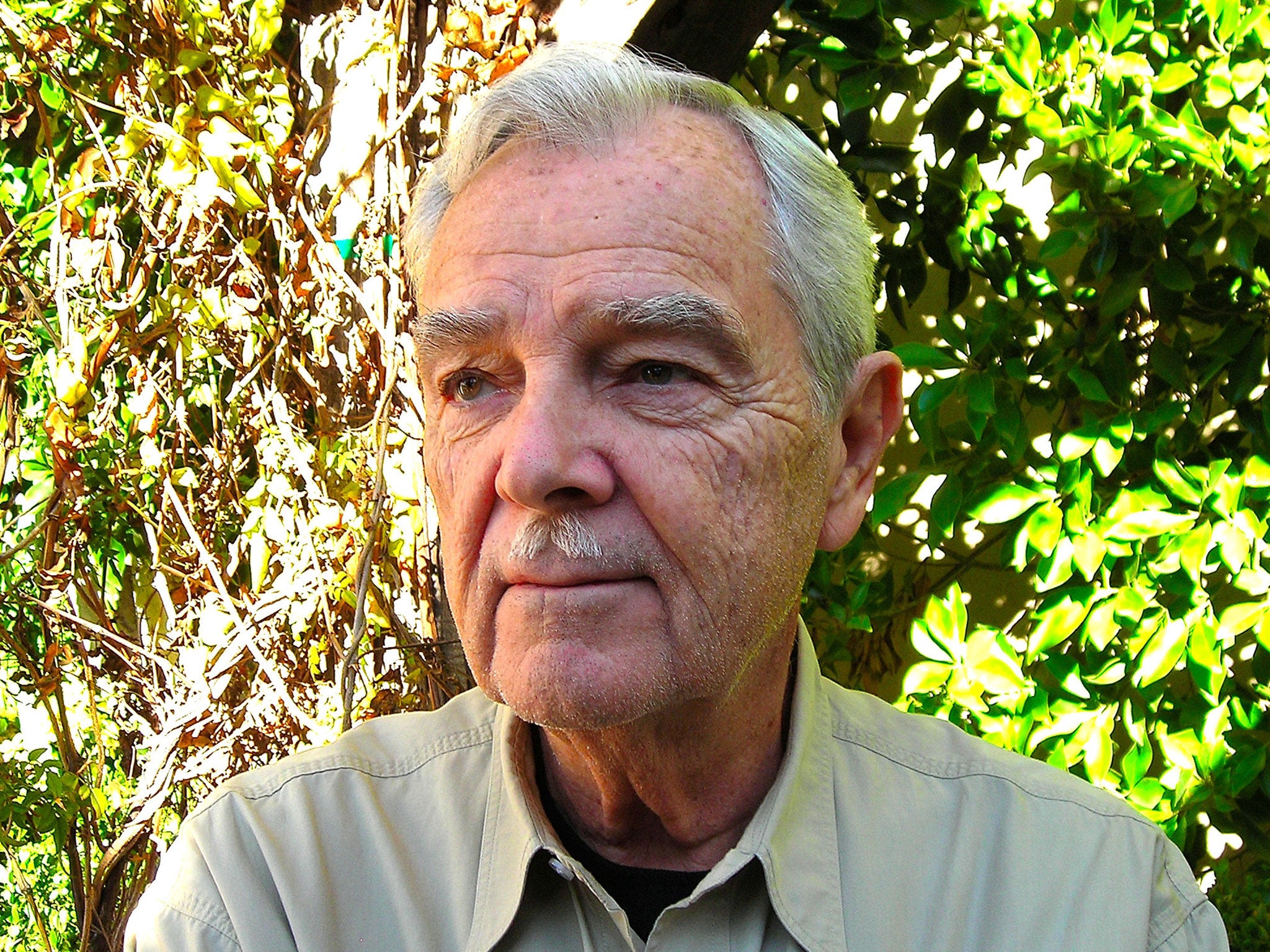William Bast: Screenwriter who created The Colbys and wrote extensively about his friendship with James Dean
He contributed to many of the most popular series on US television

William Bast was a prolific screenwriter for television and feature films. In a six-decade career he contributed to many of the most popular series on US television including such famous shows as Hawaii Five-O, Perry Mason, Alfred Hitchcock Presents, Dr Kildare and The Waltons. But there were particular strands to Bast’s career which gave him a more special claim to fame.
In 1985 he became creator and chief writer of the Dynasty spin-off The Colbys. Its stellar cast was headed by Barbara Stanwyck, Charlton Heston and Stephanie Beacham and like its predecessor it became a prime time hit. In 1986 it was voted the most popular show on US television.
In the 1960s, Bast had established himself in London, following the launch of the first British commercial TV stations. He worked for both the BBC and ITV; it was for Granada that he adapted The Tiger at the Gates, an allegorical study of the threat of war by the French playwright Jean Giraudoux. Also for Granada he wrote an original and intensely personal drama, The Myth Makers, inspired by the funeral of James Dean, whose grotesque trappings, as he saw them, had been largely driven by the Hollywood publicity machine.
What Bast did not fully reveal in his screenplay was his own intense friendship with the rebellious young star. They had been room-mates met at UCLA and both went to New York, Dean to seek acting roles, Bast to look for work writing for TV, again sharing an apartment. Bast chronicled their relationship in two books, James Dean: a Biography (1956) and Surviving James Dean (2006).
This second book presented a far more candid account of their association; Bast felt that he could at last deal honestly with the fact that he and Dean had been sexually involved. The Myth Makers was adapted again for ABC under the title The Movie Star. In 1975, again for NBC, Bast wrote and produced a further drama, James Dean: Portrait of a Friendship.
Bast was born in Wauwatosa, Milwaukee County, Wisconsin, the eldest of eight siblings whose father was a chiropractor. He studied at the University of Wisconsin then at UCLA, in theatre arts, when his family moved to Los Angeles. After following Dean to New York Bast got his first job in the PR department of CBS but soon found himself, aged 23, turning out scripts for a new sitcom, The Aldrich Family. Back in Los Angeles Dean had been cast in Elia Kazan’s East of Eden which rocketed him to stardom and created around him that potent cult of youthful vulnerability and revolt.
After Bast had returned to Los Angeles to rejoin him Dean made two further films in quick succession, Rebel Without A Cause and Giant. “Jimmy was on location a lot but we got to spend time between pictures,” Bast wrote. “It was an amazing period, Jimmy suddenly a film star, me inching along in television. Then just as suddenly it all ended.” Later Bast complained that he had never quite escaped from the shadow of Dean’s fame. “He has remained a constant backdrop to everything I do and has often, at times too often, taken centre stage.”
Not long after Dean’s fatal car crash Bast left for Europe, to live in Paris, then in London. It was during his first stay in Britain that he wrote several episodes of The Prisoner and a BBC Sunday-Night Play, “The Test”. On a later visit he was commissioned to write two feature films, The Valley of Gwangi, and Hammerhead, starring Judy Geeson and Diana Dors. But by far his most important feature was The Betsy (1978), adapted from Harold Robbins’ best-selling study of a pioneering car tycoon (based on Henry Ford), and starring Laurence Olivier, Tommy Lee Jones and Katherine Ross.
Bast received many awards. The Legend of Lizzie Borden, starring Elizabeth Montgomery, a drama based on the female axe murderer of American folklore, received the 1976 Edgar Allan Poe Award, while his adaptation of The Man in the Iron Mask from the Alexandre Dumas novel starring Richard Chamberlain received two Emmy nominations. His version of The Scarlet Pimpernel with Anthony Andrews as the elusive Sir Percy received the Christopher Award while The First Modern Olympics won him an Outstanding Script Award.
Bast was a handsome, voluble man of authoritative presence and manner who expressed his opinions, sometimes with amusing acerbity, on all aspects of his craft. As fastidious in appearance as he was in his writing, he always presented an immaculate façade, perfectly groomed and stylishly attired. In the mid-1960s he had acquired an attractive hacienda-type house in the Hollywood hills, its rear windows looking directly on to the letters of the Hollywood sign. But as a dedicated Anglophile he always kept a flat in London, his base for regular West End theatre-going on an epic scale.
In London in 1962 he had met a young Englishman, Paul Huson, who returned to live with him in Los Angeles. Huson became not only Bast’s life partner but also his co-writer who was to share many of his credits. For the past seven years Bast had suffered from Alzheimer’s disease. µ
William Edwin Bast, screenwriter: born Wauwatosa, Milwaukee County, Wisconsin 3 April 1931; civil partnership 2002 with Paul Huson; died Los Angeles 4 May 2015.
Subscribe to Independent Premium to bookmark this article
Want to bookmark your favourite articles and stories to read or reference later? Start your Independent Premium subscription today.

Join our commenting forum
Join thought-provoking conversations, follow other Independent readers and see their replies